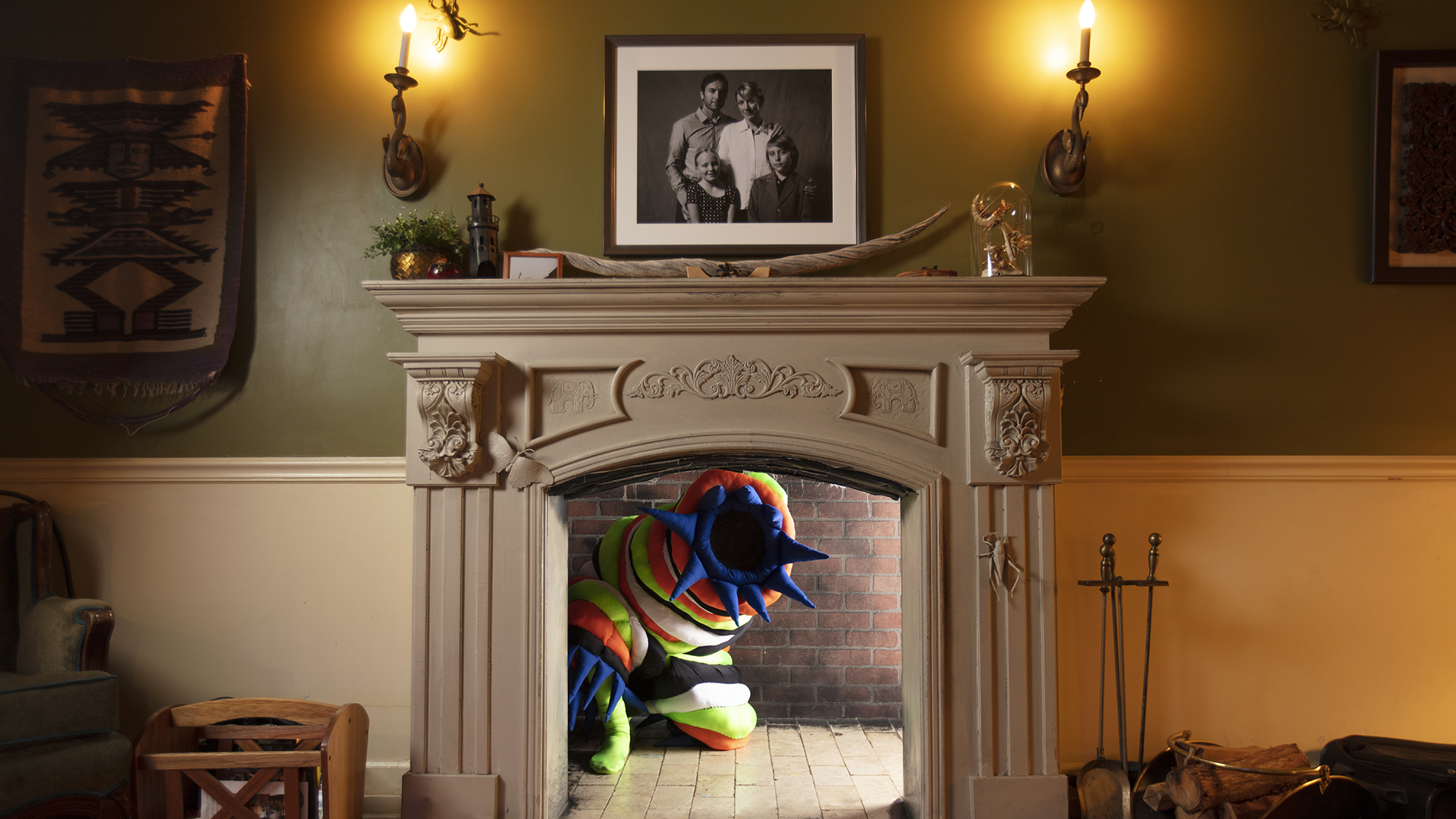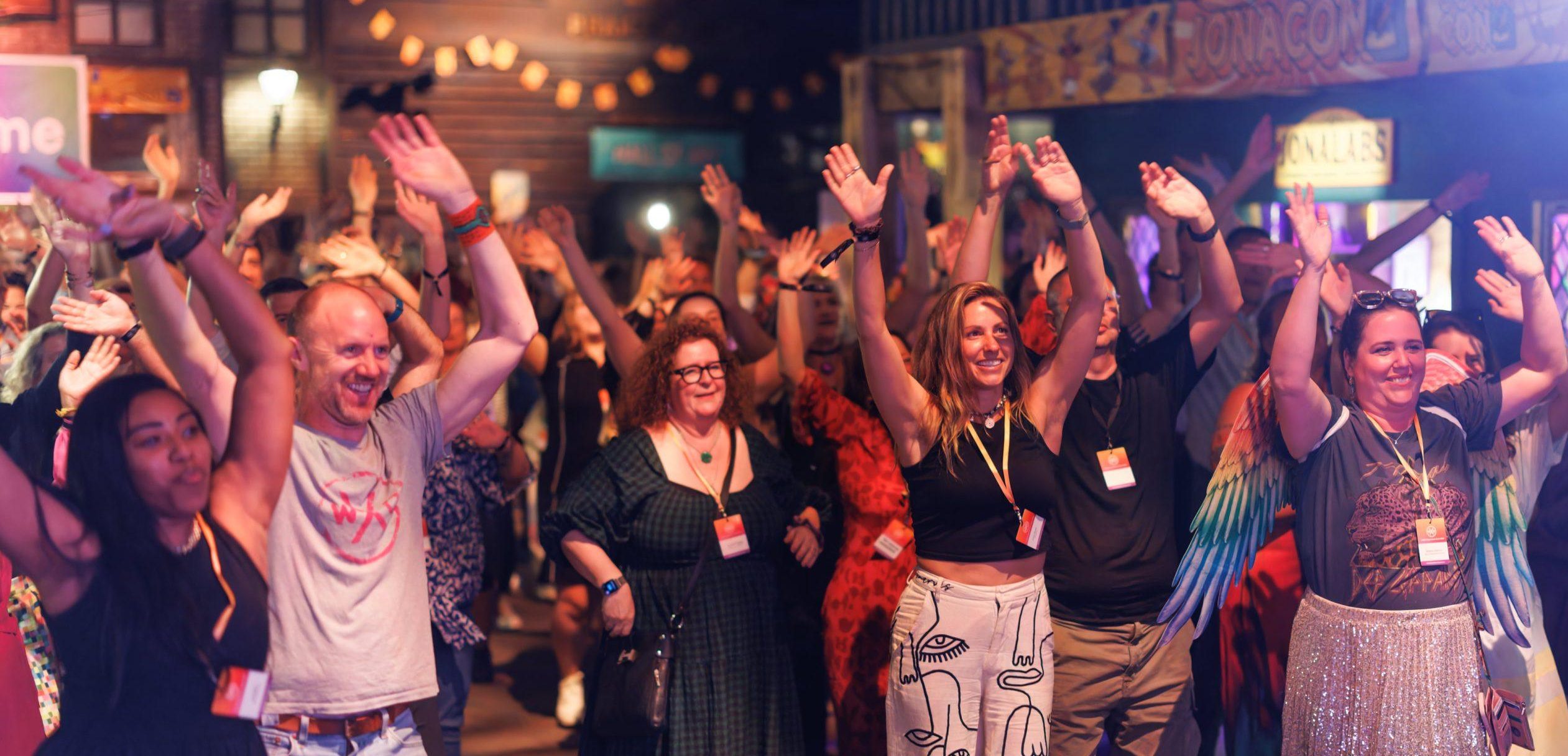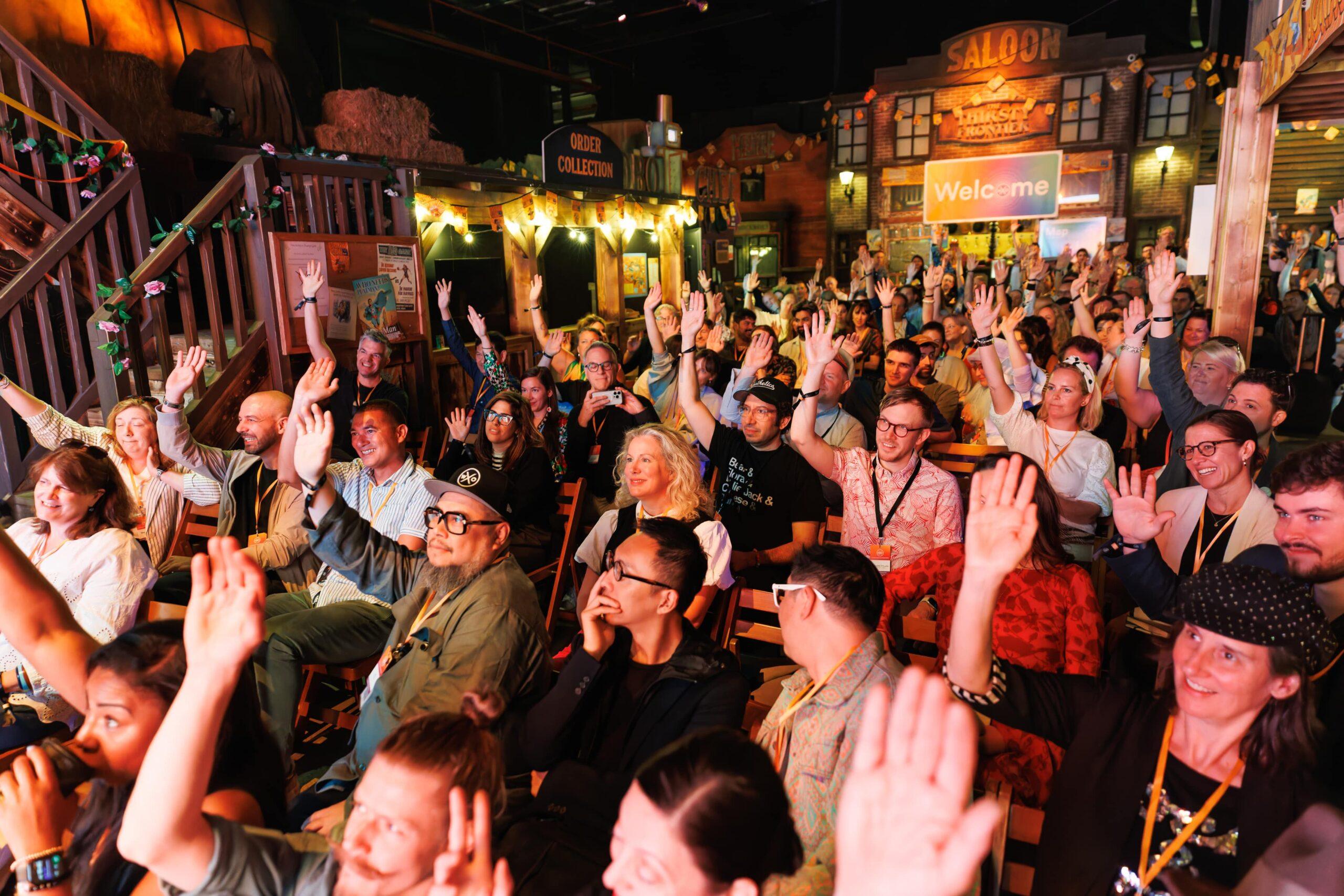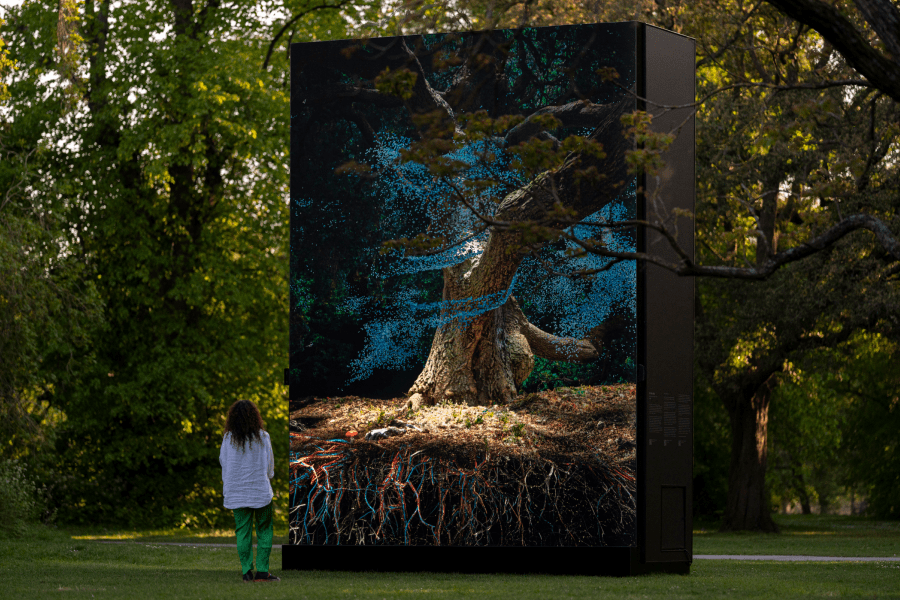Vince Kadlubek is a founder of the award-winning art and entertainment production company Meow Wolf, responsible for creating the business plan for its House of Eternal Return, raising series A funding, and announcing Meow Wolf exhibits in Las Vegas and Denver. Here he explains how in order for experience creators to save retail real estate, they must first channel their inner child, artist and maximalist.
- Covid-19 has given a massive boost to online shopping – but where does this leave already ailing high streets, retail units and shopping centres?
- Commercial developers haven’t had to rethink their business model for 30 years – but with their customers’ needs now being met online, they must reconsider what really makes people leave the house.
- This creates an amazing opportunity for experience creators, who are perfectly poised to reimagine how to inject excitement, wonder and joy into these spaces.
Learn From Children
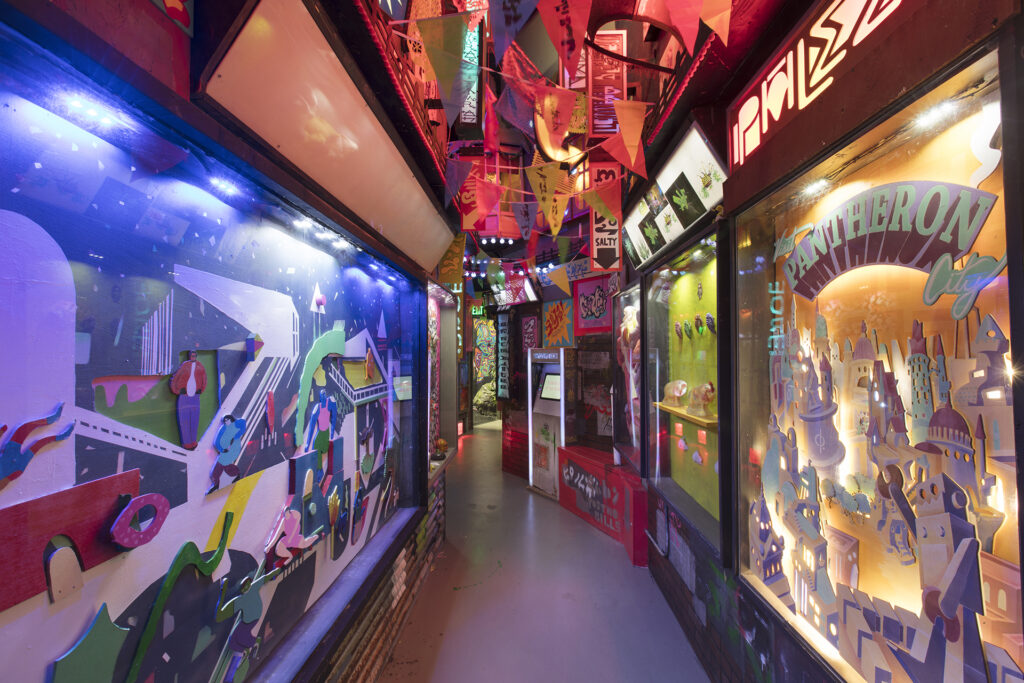
Childhood is the inspiration for so much of what we do at Meow Wolf. What I mean by that is that childhood is a state of life during which the world is full of unknowns. This makes an explorer and a scientist of every child: they have an appetite for new experiences which is unmatched. They want to explore everything, and the payoff is discovery.
As we get older and become adults, we settle into identities that often lose these elements. We live in highly structured housing developments in repetitive, predictable urban landscapes. We lose our sense of wonder, and with it, our drive to discover.
Unknown environments, such as the ones that Meow Wolf has created in Santa Fe and Las Vegas – and soon Denver – can help us to rediscover those lost things, boost our creativity, and help us to re-engage with the real world.
Covid-19 has halted people’s normal relationship to the outside world. In some ways, it has made children of us all. As we respond to the stress of our situation, we stop being able to think long-term, we depend on stronger routines, and the smaller things take on bigger meanings. The outdoors becomes amazing again. This is the sort of re-enchantment with the world that Meow Wolf wants to bring about all the time, pandemic or no pandemic.
Rediscover The Power Of Play

Of course, another enormously valuable aspect of childhood is that of play. The power and benefits of play cannot be overstated, and it’s something I would like to see become a factor in a wider range of design in years to come.
For instance, at the moment the options for adult play in the urban landscape are quite narrow: you can play in the park, normally if you’re throwing something, you can play at home, normally on devices, or you can play in the bars and clubs of the city.
I would love to see a rise in immersive theatre, play centres for both children and adults, and play integrated into mundane urban architecture. This could be location-based VR or explorable public art. The same applies to offices: why not integrate play more? Slides between floors or secret passages would add a much-needed element of fun to the working environment.
Embrace The Unknown
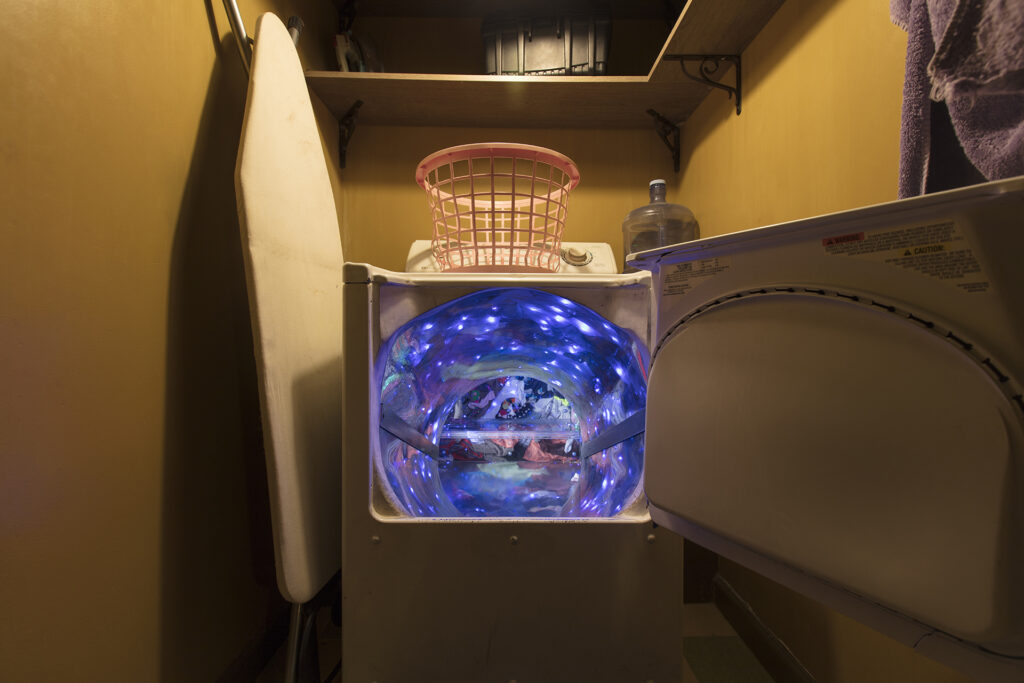
Art in particular brings forth the unknown. It is a safe venue of exploration for many people – which makes it a lot like the internet, where we can see and learn about new things from the comfort of our own homes. Our addictions to our phones – and the multiverses they are a window onto and door into – can be seen as a deep-seated yearning for new and overwhelming experiences.
With the art we make at Meow Wolf, we’re trying to create physical versions of your “Discover Page”. With the combination of Covid-19 decimating brick and mortar spaces and an over-saturated digital sphere, we think there will be a huge market opening for location-based entertainment (LBE).
More specifically, Meow Wolf is trying to bring the “artistic unknown” into commercial settings. These are typically places where the unknown is considered an enemy. The developers and architects who organise these projects want everything to be mapped out. But this, I think, is old-fashioned thinking, and will only speed up the demise of brick and mortar enterprises.
With House of Eternal Return, we gave people tickets and they entered the experience. There were no rules, they didn’t have to dress up in costumes or enter rooms one by one. All of that bogs down the whole thing, takes a lot of the fun out of it, and ultimately limits the number of people who can enter the installation at any given moment – never mind the fact that it creates too many opportunities for things to go wrong. We think that giving people agency over their experience is the golden rule for good design.
All we really do in our work is create multiple unknowns, give participants agency over their experience, and then sit back and watch as the visitors roll in from further and further afield.
Understand What People Need

Real-estate developers should realise that their target audiences – and especially families – need things to do. It really is that simple.
The video game industry solves this problem, but for many parents it is something they allow regretfully. They want to experience fun with their child – to share their experiences with them, and re-experience some of that childish wonder themselves. Location-based entertainment attractions for families are valuable and needed everywhere – in the suburbs, in medium-sized and small cities, and in major metropolises.
Covid-19 has caused a major and permanent shift. I can’t foresee that people will just flock back to shopping the way they used to. That activity was the meeting of a need and a force of habit, not the fulfilment of a genuine desire. The main question is: what gets people out of the house? This is the question that developers and designers need to be asking themselves at every possible turn.
Make It Photo-Friendly
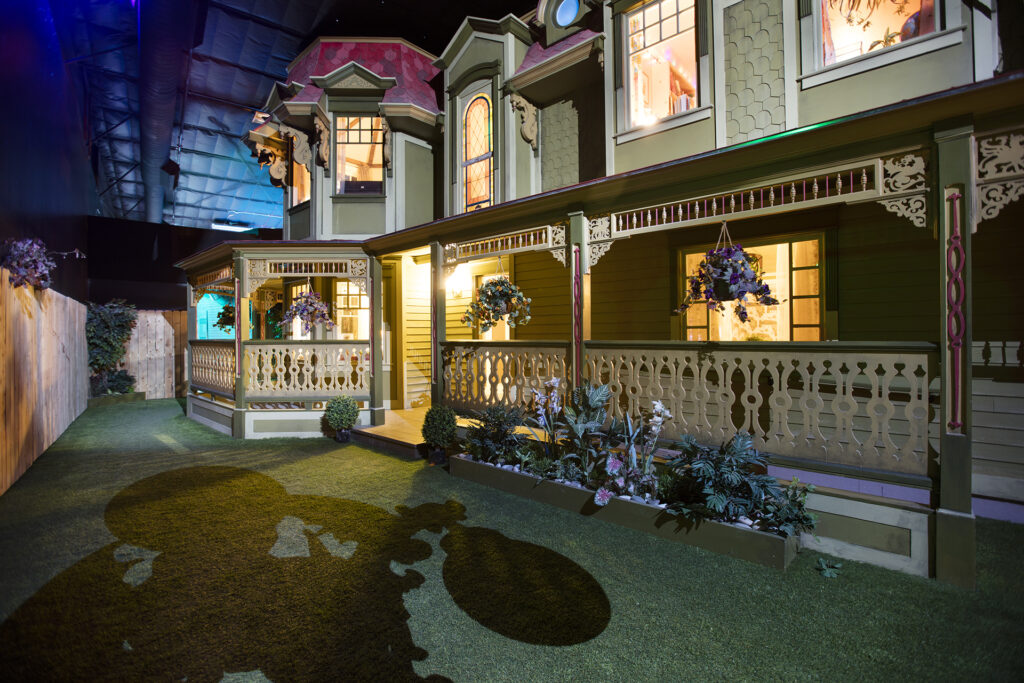
Whenever I’m looking through developers’ decks or plans, I always ask: “What are people supposed to take pictures of?” Instagrammability has become a crucial metric. Think about it this way: the more you want to take a photo of an object or scene, the more likely you are to remember it. Memorability can lead to transformation – and transformational experiences are what many of us are striving for.
When we discover something new and exciting, we want to tell our friends about it to encourage them to have the same experience, the same discovery. With Instagram, we want to show people that we have discovered something to enjoy. Those of us sitting at home see the images (that safe mode of exploration again) and become so enthused we seek out the direct, physical experience ourselves.
With our House of Eternal Return in Santa Fe, this was exactly our model. We crammed all 20,000 square feet of our space with photo opportunities, and things picked up and carried on of their own accord.
Be A Maximalist
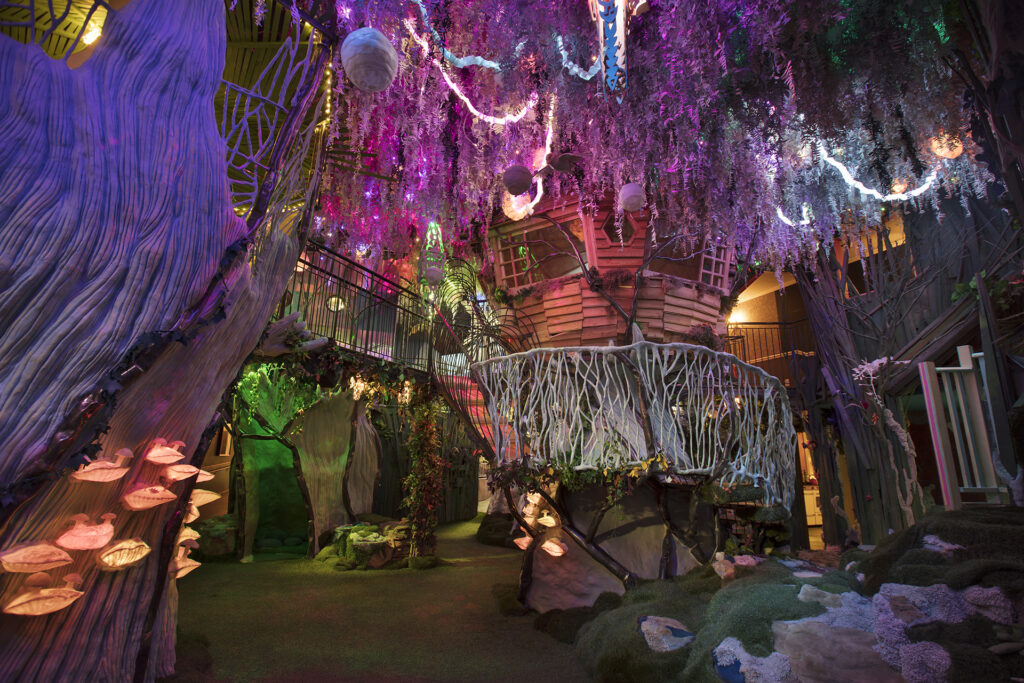
It’s very important to us at Meow Wolf that our experiences be completely maximalist in their aesthetics. Maximalism means the brain cannot map things and make them known.
Imagine you enter a science fiction theme park. You walk into a spaceship. It’s fun, but your brain recognises it. It is prepared for a predictable depiction of science fiction which it has encountered before. The spaceship immediately becomes known, which is where all the magic stops. This isn’t to say that you can’t have a great time inside a fake spaceship, but we believe the pizazz is lacking. But walk into a fantasy treehouse forest filled with lights and populated by unexpected creatures, and the brain is constantly working, pleasantly surprised.
In essence, maximalism is variety, texture and the organic. When we think of a forest, for example, we think of it as one thing. In fact, once you’re in it, you see that it’s one thing piled on top of another: mosses, twigs, trees, lichen, bushes, saplings and brambles. Nature in all its infinite variety is our ultimate inspiration. And it’s the ongoing transmission between aesthetics that really brings the magic.
About the Author
Vince Kadlubek is a Founder of Meow Wolf, an award-winning art and entertainment production company. Vince was the CEO at Meow Wolf through its formidable years, creating the business plan for Meow Wolf’s House of Eternal Return, raising series A funding, and announcing Meow Wolf exhibits in Las Vegas and Denver. In 2020 he launched a creative consultancy, Spatial Activations, to pursue his passion for co-creating alternate realities that bring transformation to the world.
To get more insights from experts in the experience economy and members of our Founding Circle like Vince – and to be the first to know about our membership programme, events and more – sign up to the WXO community here.

